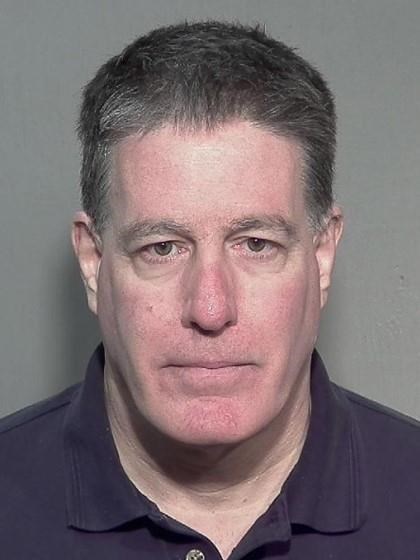
Brian Boucher, 56, is shown in this undated police handout photo. A review of the Roman Catholic archdiocese's handling of complaints against the pedophile priest is to be released today. The Montreal archdiocese ordered the review of the response to complaints against Brian Boucher by a former Quebec Superior Court justice who tabled her report in September. THE CANADIAN PRESS/HO - SPVM
Republished November 25, 2020 - 1:48 PM
Original Publication Date November 25, 2020 - 1:01 AM
Montreal's archdiocese did little to address complaints against a pedophile priest and seemed more interested in protecting his reputation than his victims, according to an independent review released Wednesday.
Former Quebec Superior Court justice Pepita G. Capriolo's report highlighted numerous deficiencies in the church's response to complaints against Brian Boucher. The priest was sentenced in March 2019 to eight years in prison for abusing two boys.
“Secrecy is everywhere in this file," Capriolo wrote in her report. "Secret archives, secret hiding places for sensitive documents and documents so secret they have been eliminated completely."
Capriolo told a news conference Wednesday the church improperly handled complaints against Boucher from the 1980s to the end of 2015. "Yet Boucher's inexcusable behaviour had been the subject of a slew complaints from the very start of his career in the church."
Her 276-page report described complaints against Boucher for behaviour that was bullying, authoritarian, homophobic, racist, misogynistic as well as verbally and physically aggressive. "What struck me most was the passing of the buck," Capriolo told reporters. "The need to protect the reputation of Boucher seemed to be paramount."
No minors had come forward with allegations of sexual abuse against Boucher until 2015. But that was no reason, she said, to exonerate church officials.
She said in the report that church officials responsible for overseeing Bouchard's education, training and his work as a priest lacked accountability and didn't take complaints against him seriously.
Two young men, 18 and 19 years old, had complained to the archdiocese in the late 1990s and early 2000s about situations involving Boucher that she said should have been more thoroughly investigated. Boucher was sent for psychological treatment in connection with one complaint, she said, adding that documents for the other disappeared altogether.
Rumours had been circulating about Boucher's interest in young boys since the 1980s, she said, adding that concerns about the priest had been communicated to the Grand Seminary of Montreal and the archdiocese, but little was done.
Boucher was sent for therapy instead of discipline, first in the 1990s and again in 2003, she said.
His 2003 psychological assessment concluded Boucher had a desire to exercise emotional control and power over young people, but it suggested the “need has not been sexually based." Capriolo said nothing in the report backed up that conclusion.
“This is important because (the report) was later used as further justification in dismissing Boucher’s potential as a sexual abuser," Capriolo noted. The 2003 assessment, along with Boucher's constant threats of legal action — including against fellow clergy — served to keep people quiet, she said.
By 2003, the church had an advisory committee on sexual abuse of minors, but no one thought it was appropriate to refer Boucher to that group, Capriolo wrote in her report. “An overdue concern with Boucher’s reputation prevented any kind of investigation that might have given rise to better decisions regarding his ordination,” she wrote.
Tracking down the documents related to Boucher also proved to be complicated, she said. Capriolo began her investigation a year ago, interviewing 60 witnesses and reviewing hundreds of documents.
Her report noted that a culture of secrecy during this period meant important documents vanished and there was lack of a paper trail, sending Capriolo on her own fact-finding mission to outside sources or into the church's own secret archives.
Archbishop Christian Lepine said the archdiocese will adopt each of the 31 recommendations put forth by Capriolo, who will help the church implement them by the fall of 2021.
"In the name of the Catholic Church of Montreal and speaking for myself, I wish to say how sorry we are that you have had to experience the effects of such terrible acts which should have never occurred," Lepine told a news conference.
Capriolo's recommendations include better oversight, organizational changes, more transparency, strict protocols for dealing with abuse and sanctions for those who violate rules. She also recommended the installation of an external ombudsperson and the creation of an advisory committee to examine complaints.
This report by The Canadian Press was first published Nov. 25, 2020.
News from © The Canadian Press, 2020